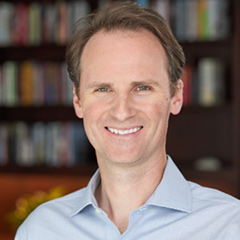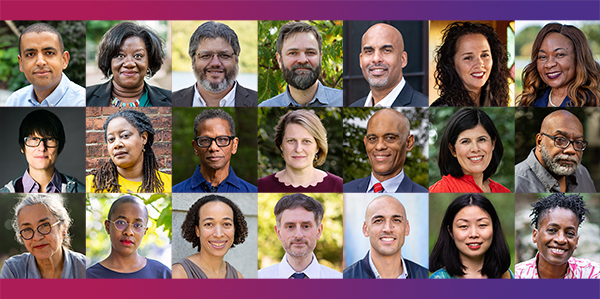MacArthur President John Palfrey shares optimism inspired by the 2019 MacArthur Fellows who pursue creative work, rigorous thinking, and selective disruption with outsized impact.
It has been just a few short weeks since I started my new role as President of the MacArthur Foundation. I come to this role and to the work of the Foundation acutely aware of the daunting challenges facing our nation and planet at this moment. I also come to this role buoyed and emboldened by a sense of optimism that we, as a society, have developed the tools and talents to respond to these challenges. This optimism has been fueled and strengthened time and again by examples of creativity, rigorous thinking, and selective disruption that have brought about outsized social impact, scientific breakthroughs, astonishing works of art, and new frameworks for understanding our society and its complex history.
My first month on the job coincides with an exciting time of year at the Foundation: the announcement of a new class of MacArthur Fellows each fall. The annual announcement of recipients offers myriad reasons for optimism. The endeavors the 2019 Fellows pursue range from criminal justice reform to landscape architecture, from cognitive science to classical translation. The optimism that these individuals inspire is both energizing and clarifying, as it is grounded in sobering, clear-eyed investigations of the enduring effects of past injustices as well as present threats to human flourishing. Here is a brief sampling from this year’s class:
- Geophysicist Jerry Mitrovica, who is developing state-of-the-art models for predicting changes in sea level in response to glacial melting
- Cultural historian Saidiya Hartman, who is retrieving from oblivion stories of sparsely documented lives that have been systematically excluded from historical archives
- Legal scholar Danielle Citron, who is reframing the scourge of cyber harassment as a violation of civil rights and proposing reforms to combat the most extreme forms of abuse
- Urban designer Emmanuel Pratt, who is transforming neighborhoods that have suffered the effects of long-term disinvestment into ecologically, economically, and culturally productive community assets
In my previous role as Head of School at Andover, I witnessed first-hand the ways that inspiring exemplars can transform young peoples’ expectations of what is possible to accomplish and change in our world. As an educator, author, and innovator much of my career has also been focused on understanding how new forms of media can enhance the way we learn and how technology might help us democratize access to information and knowledge.
As I read through the list of 26 MacArthur Fellows and watch them describe the questions that motivate their work in their videos, I am struck by the lessons these inspiring individuals have to offer, to me and to others. By elevating their work and sharing their stories of exceptional curiosity and creativity as broadly as possible, I hope that we can channel the optimism and dedication they demonstrate into our own professional and creative pursuits.
I approach these extraordinarily creative individuals, and the diversity of their work, with humility. As I join the Foundation and begin to partner in our grantmaking, I am reminded of the practice of another new Fellow, the poet and writer Ocean Vuong, who speaks of approaching his work with “The Beginner’s Mind”, one that is open to learning, that is curious, and that is excited about the possibilities.
I hope that the new class of MacArthur Fellows shares my optimism about meeting new challenges with courage and conviction. I believe that together, with ideas and resources, we have the tools to create a future that ensures more voices are heard and collaborations are formed as we work to build a more just, verdant, and peaceful world.
In the spirit of elevating inspiring models, I close with a quote from 2019 MacArthur Fellow, visual artist Jeffrey Gibson, whose work challenges the exclusion and erasure of indigenous art traditions from the history of Western art: “I didn’t grow up seeing people like me in positions of power. And so, it’s important for me to spread my work as far and wide as I possibly can so that other people like me can see it and know that they’re able to accomplish whatever it is they set their minds to.”




